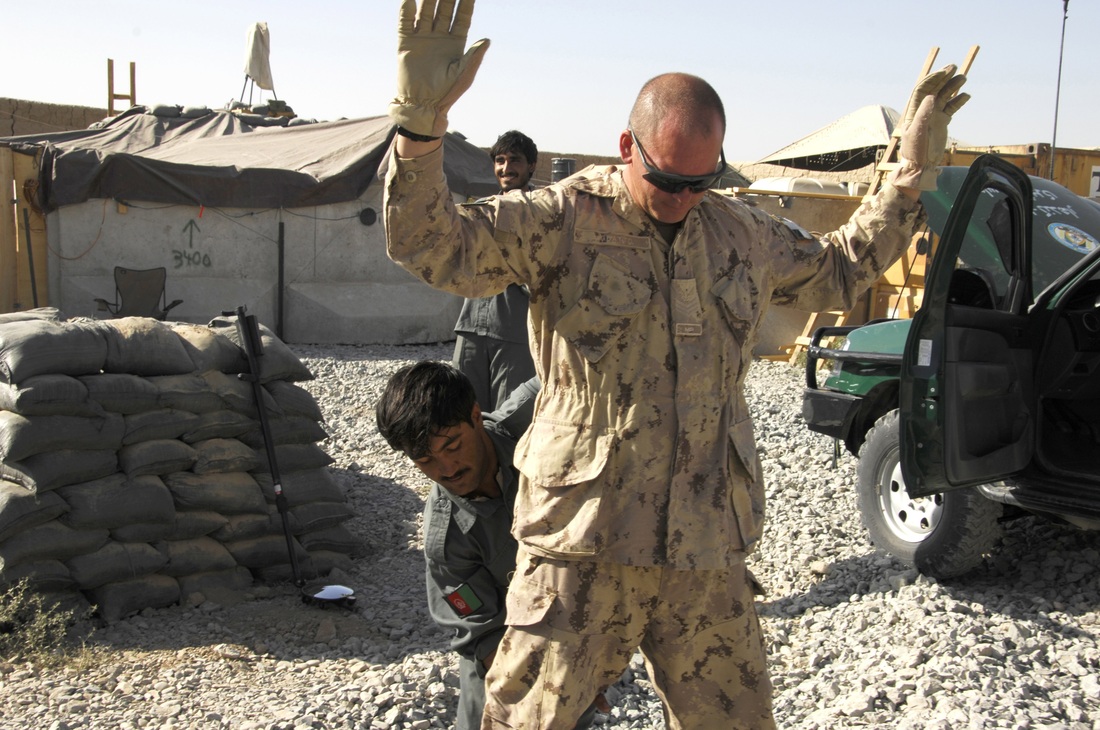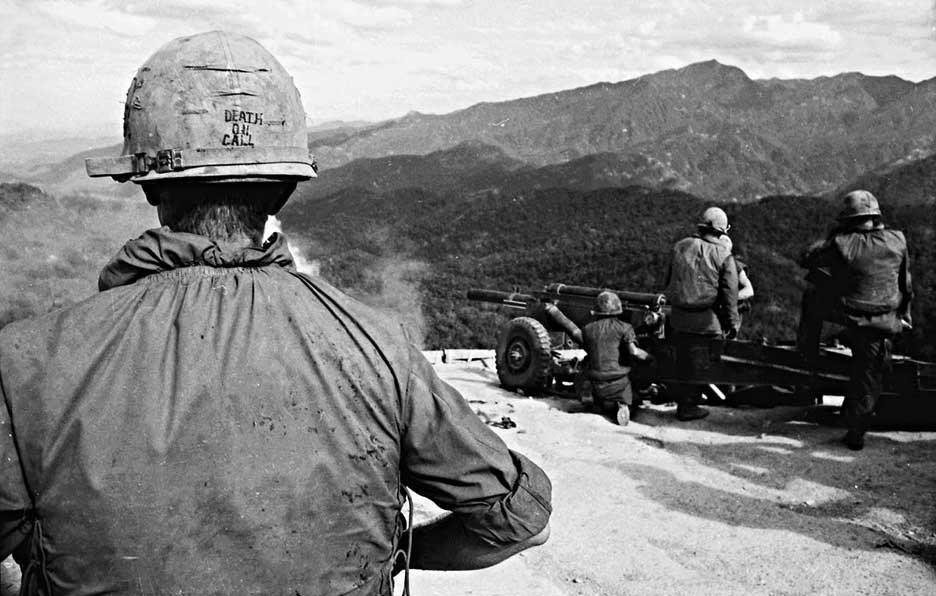

"For me, the thing about great documentaries is knowing that you're peering into some place you don't think you should peer into," he said. May said that once family members overcame their timidity and initial worries about having their lives displayed publicly, the "real emotion" emerged. "How does the deployment affect the families - the mothers, the children, the spouses?" "When we see a casualty, or hear about an injury, or when people come home, we just think about the soldier themselves, but no one is placed on the earth by themselves. While serving in Iraq, each guardsman left a significant woman at home - a mother, a girlfriend, and a wife, respectively - whose private lives were captured intimately on film, then juxtaposed with the first-person frontline experiences of the three narrators. "We focused on these three guys because they had the most complete arc to their story," May said. 11, 2001, attacks, and has since fulfilled his obligation to the National Guard. Moriarty, a resolute patriot and father of two, rejoined the army after the Sept. Pink is a carpenter with a sharp sense of humor, whose candid and insightful journal entries and letters home add color to "The War Tapes." He is now writing a book about his experience in Iraq. He is now serving in Operation Enduring Freedom with the New Hampshire National Guard in Afghanistan. Mike Moriarty.ĭuring the film, Bazzi, an Arabic-speaking Lebanese-American, was a university student he loves politics, traveling, and being a soldier.

"We suggested they hook up their cameras and let 'em roll all through their shift, as opposed to trying to catch certain things on tape."Īfter the year-long deployment, 1,000 hours of raw footage was distilled into a 97-minute film narrated primarily by three guardsmen - Sgt. "Inevitably, if you let the camera run, you're going to come upon things that are going to be compelling and also provide the fodder necessary to understand what they've gone through," May said. According to the film's Web site, the unit traveled 1.4 million miles during their tour, and lived through more than 1,200 combat operations and 250 direct enemy engagements - nearly one a day. Troops were eager to use the new gadgets as a diversion during their daily routine, he said, and after deploying to Iraq, they adopted the technology as a second set of eyes, mounting cameras on gun turrets, inside dashboards and on their Kevlar helmets and vests.īased at Logistics Support Area Anaconda in Balad, Iraq, the guardsmen recorded their lives under constant threat of ambush and deadly improvised explosive device attacks. When "The War Tapes" director, Deborah Scranton, offered the cameras to Charlie Company, 3rd of the 172nd Infantry Regiment training at Fort Dix, N.J., in 2004, 21 of the guardsmen agreed to film the ensuing year of their lives, May explained during an interview with American Forces Press Service. "The War Tapes," which made its theatrical debut last year and won the 2006 Tribeca Film Festival award for best documentary, will air tomorrow on the Military Channel, A Discovery Channel affiliate. "What about the majority of the people who come home?" "You hear about the people who die, you hear about the people injured," May said. No, he's not, said Robert May, producer of "The War Tapes," a documentary that shows Operation Iraqi Freedom through the eyes of several New Hampshire National Guardsmen who were supplied with digital video cameras and an endless supply of tape. WASHINGTON - When a soldier returns from war, is he the same person he was before deploying?


 0 kommentar(er)
0 kommentar(er)
